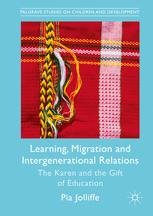

Most ebook files are in PDF format, so you can easily read them using various software such as Foxit Reader or directly on the Google Chrome browser.
Some ebook files are released by publishers in other formats such as .awz, .mobi, .epub, .fb2, etc. You may need to install specific software to read these formats on mobile/PC, such as Calibre.
Please read the tutorial at this link: https://ebookbell.com/faq
We offer FREE conversion to the popular formats you request; however, this may take some time. Therefore, right after payment, please email us, and we will try to provide the service as quickly as possible.
For some exceptional file formats or broken links (if any), please refrain from opening any disputes. Instead, email us first, and we will try to assist within a maximum of 6 hours.
EbookBell Team

5.0
88 reviewsFocusing on the Karen people in Burma, Thailand and the United Kingdom, this book analyses how global, regional and local developments affect patterns of learning. It combines historical and ethnographic research to explore the mutual shaping of intergenerational relations and children’s practical and formal learning within a context of migration and socio-political change. In this endeavour, Pia Jolliffe discusses traditional patterns of socio-cultural learning within Karen communities as well as the role of Christian missionaries in introducing schooling to the Karen in Burma and in Thailand. This is followed by an analysis of children’s migration for education in northern Thailand where state schools often encourage students’ aspirations towards upward social mobility at the same time as schools reproduce social inequality between the rural Karen and urban Thai society. The author draws attention to international humanitarian agencies who deliver education to refugees and migrants at the Thai-Burma border, as well as the role of UK government schools in the process of resettling Karen refugees. In this way, the book analyses the connections between learning, migration and intergenerational relations in households, schools and other institutions at the local, regional and global level.